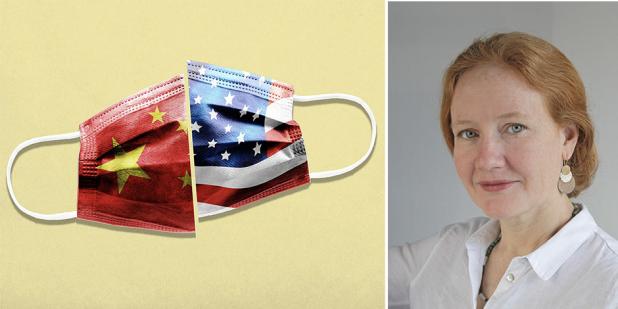Join us for a free one-day workshop for educators at the Japanese American National Museum, hosted by the USC U.S.-China Institute and the National Consortium for Teaching about Asia. This workshop will include a guided tour of the beloved exhibition Common Ground: The Heart of Community, slated to close permanently in January 2025. Following the tour, learn strategies for engaging students in the primary source artifacts, images, and documents found in JANM’s vast collection and discover classroom-ready resources to support teaching and learning about the Japanese American experience.
After the Coronavirus: China and the US
Please join the USC U.S.-China Institute for a discussion with Lucy Hornby, long-time China correspondent at the Financial Times, for a look at how the virus has impacted the U.S.-China rivalry.

Has the coronavirus given China a stronger hand in international affairs? Join Lucy Hornby, long-time China correspondent at the Financial Times, for a look at how the virus has impacted the great rivalry of our times.
Lucy Hornby is a 2020 fellow at the Nieman Foundation for Journalism at Harvard. She has lived in China for 20 years, most recently serving as deputy bureau chief in Beijing for the Financial Times. Hornby has reported from every Chinese province and region for the FT and Reuters on topics ranging from elite politics to the trade war and environmental pollution. She first moved to China with Princeton in Asia, a program that builds bridges between the U.S. and Asia, and taught English in the industrial city of Wuhan. Hornby has led investigations into some of China’s biggest and most indebted companies, including FT’s examination of the ownership of HNA, one of the country’s largest conglomerates. Her coverage has won numerous awards, including the 2018 Society of Publishers in Asia’s award for excellence in business reporting.
Register for this webinar:
https://usc.zoom.us/webinar/register/WN__tvmrLevSniVfIJoaFBpYg. After registering, you will receive a confirmation email containing information about joining the webinar.
Featured Articles
Please join us for the Grad Mixer! Hosted by USC Annenberg Office of International Affairs, Enjoy food, drink and conversation with fellow students across USC Annenberg. Graduate students from any field are welcome to join, so it is a great opportunity to meet fellow students with IR/foreign policy-related research topics and interests.
RSVP link: https://forms.gle/1zer188RE9dCS6Ho6
Events
Hosted by USC Annenberg Office of International Affairs, enjoy food, drink and conversation with fellow international students.
Join us for an in-person conversation on Thursday, November 7th at 4pm with author David M. Lampton as he discusses his new book, Living U.S.-China Relations: From Cold War to Cold War. The book examines the history of U.S.-China relations across eight U.S. presidential administrations.




